The NatSIDE Team
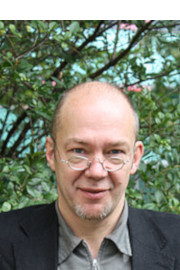
Nikolaus Ritt is professor of English Historical Linguistics at Vienna University. He got his PhD at Vienna in 1990 with a thesis on changes of vowel Quantity in Early Middle English. (Quantity Adjustment, Cambridge University Press, 1994). Educated in the theoretical framework of Natural Linguistics (going back to David Stampe and developed in Vienna by Wolfgang Dressler and his research group), his main concern is to combine the functionalist tenets of linguistic naturalism with the insight that languages are historical systems whose constituents owe their existence to being successfully transmitted among speakers and speaker generations. As outlined in the programmatic volume Selfish Sounds (Cambridge University Press, 2004), he is working on a research program that views languages as systems of replicating competence constituents, which undergo a generalized type of Darwinian evolution. While the physiology, as well as the communicative, cognitive and social needs of speakers are seen as crucial factors in the selection of constituent variants, Ritt’s current research focuses primarily on potential co-adaptive relations between competence constituents, which he thinks might explain the systemic coherence of individual languages as well as the seemingly directed long term developments they often undergo.
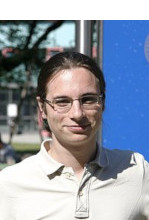
Andreas Baumann studied Mathematics and General and Applied Linguistics, and holds a PhD in Cognitive Science from the University of Vienna. In his PhD project he worked on modeling evolutionary dynamics of phonotactics. From 2011 to 2018 he was a research and project assistant, and from 2019 to 2021 postdoc assistant at the Department of English. His main interests are evolutionary linguistics, digital humanities and applications of mathematical models to language acquisition and change. In recent projects, he has worked on population dynamic as well as data driven, experimental and cognitive approaches to change in phonology, phonotactics, and the lexicon.
He is currently senior scientist at the Department of European Comparative Literature and Language Studies.
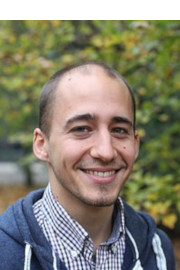
Klaus Hofmann studied English and History and continues to study Global History at the University of Vienna. His academic interests lie in the fields of English historical phonology, construction grammar, historical global studies and historical primary source analysis.
During the final stage of his studies in History, he became intrigued by the work with historical primary texts. His BA thesis in History was a qualitative analysis of late medieval town council records from Wiener Neustadt (published in Pro Civitate Austriae NF 16).
In 2010/2011, Klaus spent an ERASMUS year at the University of Edinburgh, where he first became enchanted with the wonders of Old and Middle English. During that time he also collected the primary source material for his diploma thesis, which dealt with the anglicisation of the language of Middle Scots legal-administrative texts during the Early Modern period.
In December 2013, Klaus returned to the Department of English at Vienna University to work there as a research assistant in the team of Nikolaus Ritt. His main focus has since shifted from the analysis of historical primary texts to diachronic applications of construction grammar and the study of historical prosody. For his PhD thesis, he investigates the possible impact of utterance rhythm on the assignment of lexical stress in English.
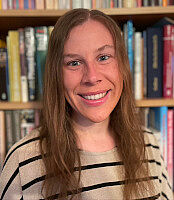
Theresa Matzinger studied English and Biology (teaching degree), Cognitive Biology and English Language and Linguistics, and holds a PhD degree from the University of Vienna. In her interdisciplinary PhD thesis, supervised by Prof. Nikolaus Ritt and Prof. Tecumseh Fitch, she investigated the role of prosody in language learning, language change and language evolution. Currently, Theresa Matzinger is working as a post-doctoral research fellow at the Centre of Language Evolution Studies at the Nicolaus Copernicus University Toruń and as a lecturer at the University of Vienna.
Her main research goal is to shed light on the cognitive constraints and communicative pressures that led to similarities and differences between languages. Her work focuses on the biological and cultural evolution of language(s), language learning, historical language change, and non-human animal communication and cognition. Presently, she is extending her research to social and aesthetic factors that may influence how languages are acquired and used. In her research, she combines methods from the fields of psycholinguistics, evolutionary linguistics, historical linguistics, corpus linguistics, sociolinguistics, behavioral economics, and behavioral biology.
Theresa Matzinger is an advocate of open and reproducible research practices, likes statistical data analysis and data visualization, and is passionate about science communication. Besides her scientific work, she has taught Biology and English at a Viennese high school.
Magdalena Schwarz studied psychology, English, and cognitive science at the University of Vienna. In the course of her studies, she spent exchange semesters at the University of Bratislava and at the University of Edinburgh. At the latter, she learned about the origins of human language, evolutionary linguistics, and experimental methods applied in the field of cultural evolution. This knowledge inspired her MA thesis, in which she employed an artificial language learning experiment to investigate a potential cognitive bias for vowel harmony.
Since 2018, Magdalena Schwarz has been working as a pre-doc assistant at the Department of English and American studies. Her PhD project combines historical and evolutionary linguistics with sociolinguistics, as she derives hypotheses about the role of identity and group dynamics in the selection of linguistic variants from the recent history of English, and then tests them using artificial language learning experiments.
Publications | Talks & Activities
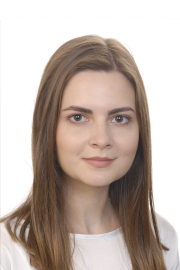
Vanja Vukovic studied English language and linguistics at the University of Vienna. During her studies, she mainly focused on historical phonology and corpus linguistics. These interests served as an inspiration for her MA thesis, in which she investigated diachronic changes in English monosyllables from an evolutionary perspective.
In 2019, Vanja received a Uni:docs scholarship that enabled her to pursue a PhD in English linguistics. Her PhD project is jointly supervised by Nikolaus Ritt and Barbara Seidlhofer, and it focuses on cognitive processes in second language use. Under the assumption that usage as reflected in corpora can mirror cognitive reality, the project looks at syntactic and lexical alignment processes in a corpus of naturally occurring interactions in English as a lingua franca (ELF). In a further step, the project will involve a qualitative analysis of accommodation strategies in ELF communication in order to provide a multi-level perspective on the phenomenon.
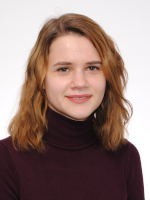
Irene Böhm studied English language and linguistics at the University of Vienna. In the course of her studies at the English Department and an exchange semester at the University of Edinburgh, she developed a strong interest in historical English phonology and how sound change may be accounted for in natural and evolutionary perspectives. The fascination with such research questions lead to her MA thesis in the field of morphonotactics, where she examined the evolution of stem-internal versus cross-morphemic consonant clusters in an experimental artificial language learning paradigm.
In 2021, she started a position as a pre-doc assistant at the Department of English and American studies. In her PhD project, she is continuing to pursue her interest in diachronic morphonotactics. At present, her work focuses on the role of morphonotactic patterns and preferences in historical English sound change on the basis of a combination of corpora and experimental methods.
Former team members
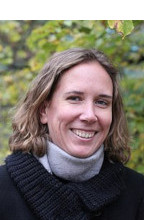
Elnora ten Wolde studied English Language and Literature in Australia and Austria, finishing an MA in Vienna in 2009. Her MA thesis examined the application of linguistic theories to characterization in literary texts. After teaching English language and Composition courses at the University of Vienna and Webster University in Vienna from 2009 -2013, she returned to the University of Vienna English Department as a research assistant and is writing her PhD on the diachronic development and synchronic categorization of the binominal noun phrase using both Construction Grammar theory and Functional Discourse Grammar model. Her interests include language theory and language models, syntax – diachronic and synchronic, and philosophy of linguistics.
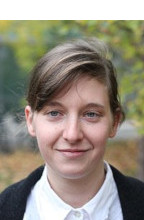
Eva Zehentner studied English and Indo-European Studies at the University of Vienna, graduating in 2012/2013.
From 2012 to 2016, Eva Zehentner was employed as a research assistant at the Department of English of the University of Vienna, where she also obtained her PhD in English historical linguistics. Following a year of postdoc experience at the same department and additional teaching at the University of Innsbruck, she took up a lecturer position in English linguistics at the Department of Language and Linguistic Science at the University of York, UK, in 2017; in 2018, she also started working on an SNF-funded project on argument structure in the history of English at the University of Zurich. She finally moved to Zurich full-time in 2019, and currently holds a senior research and teaching assistant position at the English department there.
Her main research interests include English diachronic morphosyntax (in particular changes in argument structure), methods in corpus linguistics, as well as theories of language (change), specifically cognitive-constructionist approaches to language and evolutionary linguistics.
Kamil Kaźmierski received his MA degree in 2009 from Adam Mickiewicz University in Poznań, Poland. He then moved to Vienna to join the NatSIDE team and to work on a doctoral project under the supervision of Niki Ritt. In 2013, he defended his evolutionarily-minded PhD thesis titled "The history of English vowels. An evolutionary account of the Great Vowel Shift and related vocalic changes". In it, he describes the rise in importance of vowel quality over vowel quantity in English, and the concomitant rise in the "vowel shiftiness" of English. This account is written from the point of view of linguistic replicators.
Since 2013, Kamil is back at AMU in Poznań and working on the phonological implications of phonetic variation in areas spanning language acquisition, language change, and sociophonetics.
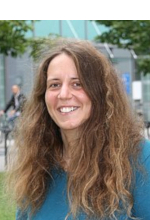
Theresa-Susanna Illés studied English and General Linguistics at Vienna University. In 1998 she received a grant from Vienna University to do research at libraries in Dublin. After five years working for the Celtic Studies Curriculum at the Department of Linguistics she joined the Department of English in 2006 as a research assistant. Her MA thesis of 2001 investigates the application of mutational patterns to English loan words in Irish language newspapers, and provides an insight into the strategies adopted in the integration of foreign elements into Irish texts. Her research interests lie mainly in the fields of general historical linguistics, particularly with regard to English and Gaelic, (historical) sociolinguistics, and the Modern Gaelic Languages, specifically Modern Irish. While she has mostly withdrawn from active research, she still teaches Irish at the Department of Linguistics at univie.
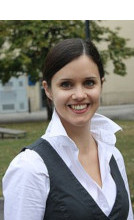
Ursula Lutzky studied English, French and Finnish at the University of Vienna. Her PhD thesis contributed to the field of historical (socio)pragmatics by exploring the use and distribution of the discourse markers marry, well and why in Early Modern English corpora (Discourse Markers in Early Modern English, Benjamins, 2009).
Today, Lutzky is an Associate Professor at the Vienna University of Economics and Business, where she is a member of the Institute for English Business Communication and Deputy Head of the Institute for Communication Management and Media. Her core research interests include business communication, discourse studies and pragmatics. She mainly investigates ‘language in use’ in a variety of contexts, such as customer communication, and the discursive effects that are created as a consequence of the linguistic choices speakers and writers make.
Her recent work has focused on the study of large corpora of digital discourse, such as blogs and microblogs. Her monograph The Discourse of Customer Service Tweets (2021, Bloomsbury) explores the linguistic and communicative features used by companies and their customers when engaging in customer service interactions on Twitter.
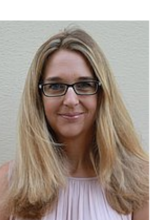
Lotte Sommerer is a historical, functional-cognitive linguist who works on morphosyntactic variation and change in Present Day English, Early Modern English and Old English. After studying English and German at the University of Vienna and Toronto, she defended her PhD thesis on nominal determination and article emergence in Old English in 2011 at the Universität Wien. At that time she was a member of NatSide. After holding a ph2 Professorship at the Kirchlich-Pädagogische Hochschule Wien/Krems from 2013 to 2016, she returned to the University of Vienna and was a member of the Fun*Cog research group from 2016 to 2021. Since March 2021 she has been working at the English Department of the Albert-Ludwigs-Universität of Freiburg, Germany as an Assistant Professor. She subscribes to a usage-based, constructional theory of morphosyntax (UCCxG, DCxG) that does full justice to functional and cognitive constraints, takes account of variation and gives equal weight to form and function in order to explain the shape of and changes in a linguistic system.
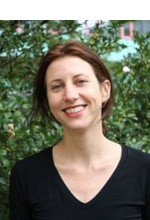
Christina Pawlowitsch studied Economics at the University of Vienna. She received her Ph.D. in July 2007 with a dissertation on evolutionary language games; her thesis supervisors were Professor Gerhard Sorger from the Economics Department and Professor Karl Sigmund from the Faculty of Mathematics. Form an evolutionary point of view, language is a case par excellence where the success of a strategy---a property or feature of language---typically depends on the frequencies of the other strategies present in the population. Evolutionary game theory provides a coherent framework for studying the evolution of such frequency-dependent phenomena. Questions about the evolution of language and language change, therefore, naturally lend themselves to a treatment in terms of evolutionary games. Pawlowitsch has worked on efficiency properties and criteria for evolutionary stability in this context. From September 2007 to August 2009 she was a post-doctoral researcher at Program for Evolutionary Dynamics, Harvard University, USA. She joined the Department of English at the University of Vienna and NatSide in September 2009 and now works as Assistant Professor for Applied Mathematics at the University Panthéon-Assas in Paris.
